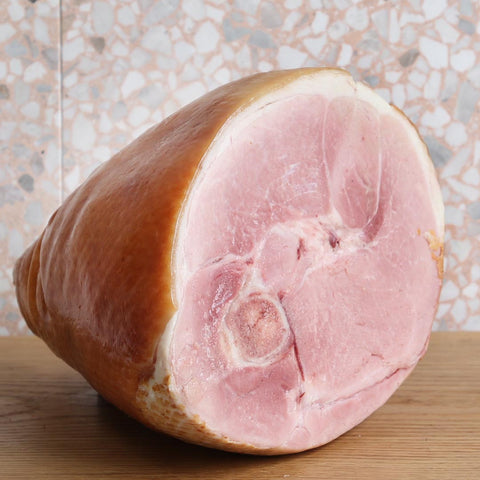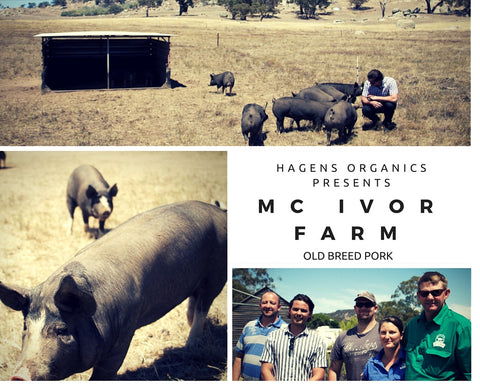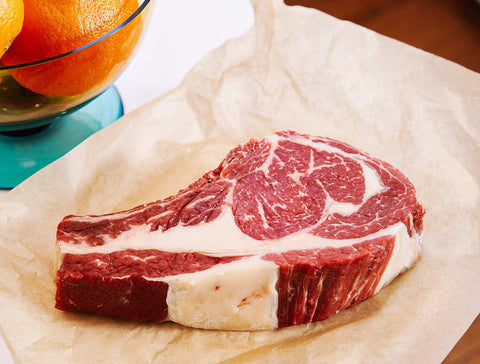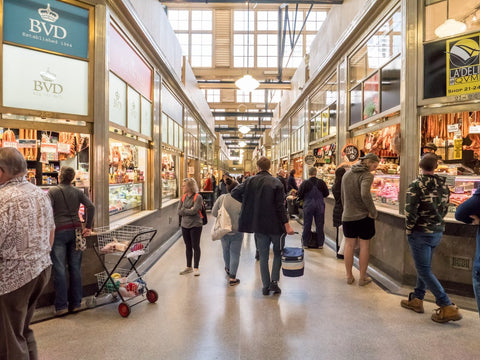
One of the most special features on any Christmas table is the leg of ham.
Presented proudly and surrounded by condiments, the leg of ham sits as the centrepiece of the dinner table.
We can’t get enough of our hams and eat them all year round, but we have a particular penchant for pork over the long Australian summers.
Being an organic butcher, one who choses health before shelf(life) and other benefits, we took a critical look at Hams on the market years ago. Here's what we found:
- Free range pork is as rare as hens teeth
- Commercial pork is filled with synesthetic nitrites
- Most hams follow an extensive supply chain, even if purchased from your local butcher's shop. Hams typically go from a large commercial farm, to the abattoir, to a distributor, to the shop, then to factory then back to the shop. It’s also common practice for many butchers to have someone else make their hams.
- The majority of commercially available hams are filled with salt, which is used by many factories to prolong the shelf life of the meat.
- For efficiency and to keep costs down, most hams are cooked very quickly at a high temperature
In our own ham making practice, we have addressed each of these issues.
- We work with local farmers who value sustainable and ethical animal husbandry who raise their animals guided by organic and free range principles. We've partnered with great suppliers such as farmers Jason and Belinda Hagan at McIvor Farm. The Berkshire Pork live happy and stress free lives being raised truly free range on the farm
- Back in in the early 2000s, we started working on minimising the use of chemicals in our products. When it comes to ham, we use an organic nitrite derived from plants such as celery to cure and preserve the meat. Using this celery derivative, we've worked closely with the leading experts in this field to develop our natural-nitrite hams to where they are today.
- Our pork goes from McIvor Farm Foods in Tooborac, an hour and a half North-West of Melbourne, to the abattoir to be killed, then it comes directly to us at our Richmond warehouse. We proudly prepare every single ham by hand. While we’re only a small business, during the November and December months, we’ll bone, brine, net and smoke between 3000 and 4000 hams. One butcher will spend the time personally preparing every ham that leaves Hagen’s Organics!
- Ever had a Christmas ham that was over-salted? When curing our hams we use the minimum amount of salt in the process as possible. This is better for your heart (and hydration at 3am on Boxing Day!)
- Once cured, we smoke our hams at a low temperature, slowly for over 16 hours to ensure they don't dry out and the natural flavour is preserved. For smoke we use sustainably grown Victorian Red Gum wood chips - Red Gum is the envy of the world when it comes to smoke, it burns clean with minimal ash and great flavour very similar to hickory.
What you see is what you get with Hagen’s Hams. These higher welfare animals have lead ‘beyond’ free range lives, have been carefully prepared by hand and shared among our community. We’re proud to prepare the hams for McIvor Farm themselves, in addition to those we sell at our own shops and a few selected restaurants and cafes around Melbourne.







